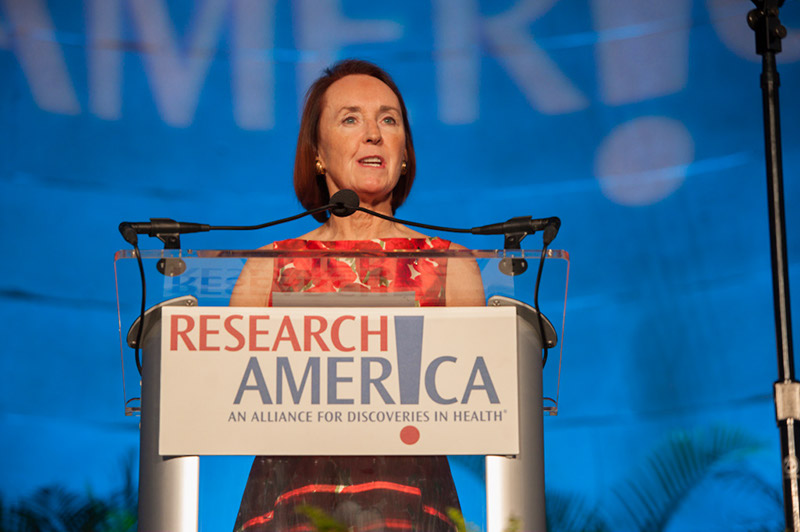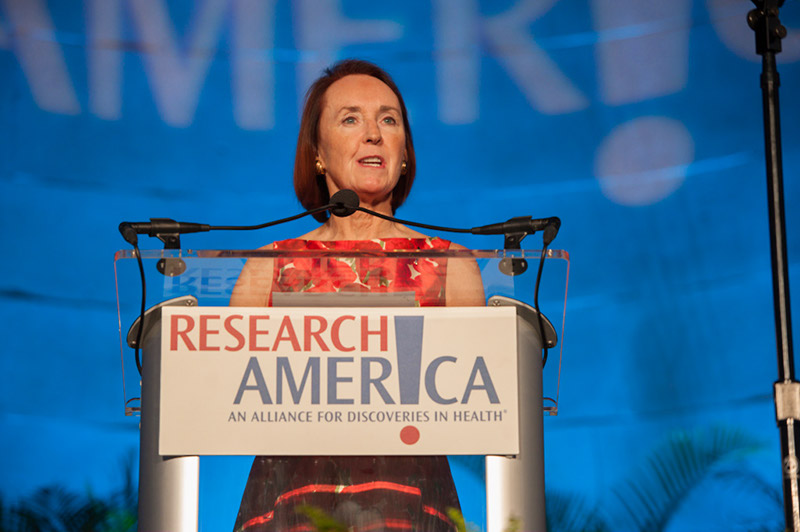Sound science, smart advocacy


Dear Research Advocate:
The Trump Administration released its first list of science priorities, an annual White House document intended to guide federal agency budget-making as it relates to research and development. You are likely getting tired of me asserting that the news is mixed when it comes to the goings on in Washington…the news here is mixed.
There are several glaring and disturbing, albeit unsurprising, omissions: e.g., no acknowledgement that our nation is grossly and dangerously underfunding R&D relative to the threats we face and the returns it generates; no reference to leveraging R&D against climate change. But there are aspects of this document that are heartening: e.g., the White House acknowledges the crucial importance of federal funding for basic research, stresses the need to avoid duplication within government and overlap with industry (who isn’t for that?), and emphasizes R&D that “will lead to more efficient and effective healthcare” (read: health services research).
Because the current Administration’s track record on science is sketchy at best, it is admittedly a bit nerve-wracking to take a step back and try to judge this document on its own merits. But dispassionate evaluation is not only the hallmark of sound science, it’s the starting point for smart advocacy.
Speaking of federal funding, the news will not be good for medical progress, scientific leadership or any other enduring American priority unless Congress lifts the oppressive “sequestration” caps on discretionary spending. Join us for two digital days of action — September 11 and 12 — focused on convincing Congress to #RaiseTheCaps! More details to come; follow Research!America on Twitter and Facebook to stay in the loop. And for a little inspiration, this one-pager provides a few of the many reasons a budget deal makes sense. I hope you’ll share it far and wide.
Federal funding is one variable bearing on medical progress; tax policy is another. In 2015, members of Congress acted on a bipartisan basis to suspend the medical device excise tax. Now they need to repeal it. Think about precision medicine, and where we’d be without companion diagnostics. Think about wounded warriors, and the significance of ever more sophisticated prosthetics, surgical tools and wound care. Excise or “luxury” taxes divert investment away from their target, when more investment in new medical technologies — not less — is what makes sense for Americans (and America and people across the globe).
Ensuring that faster medical progress is treated as a top national priority takes vigilance across the spectrum of policy and regulatory decisions bearing on it. Use this action alert to help secure repeal of the medical device tax this year.
In that same vein, it is profoundly important, and will not be easy, to prevent new restrictions on fetal tissue and stem cell research. The recently released House minibus appropriations bill includes restrictions that would effectively ban federally-funded fetal tissue research. The Senate seems poised to follow suit, and may also attempt to impose new limits on embryonic stem cell research. These restrictions would stop promising research in its tracks, narrow the path to progress, and set the stage for other policy decisions that choke off new knowledge at the expense of us all.
We need all hands on deck. A coalition of organizations is sending a sign-on letter urging members of the Senate to refrain from imposing these research restrictions. Contact Lizbet Boroughs ([email protected]) if your organization wishes to join the letter and/or the coalition.
Late last week, President Trump announced that he will declare the opioid epidemic a national emergency, heeding the advice of the President’s Commission on Combating Drug Addiction and the Opioid Crisis and empowering a more intensive federal response. The opioid crisis will be a key topic at our 2017 National Health Research Forum on September 7. We are thrilled that the distinguished list of panelists includes two members of the Commission: Governor Charlie Baker (R-MA) and former Congressman Patrick Kennedy. Other panels will discuss why “failing faster” is a success story, and what the goal posts actually are as we strive for a world free of disease. We’re rapidly reaching capacity. RSVP today!
Sincerely,
Mary Woolley




